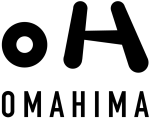Frontpage Info about Omahima Our story
Our story
You are welcome to get to know the story behind Omahima
I'm Kirsi Ola, a small entrepreneur and the founder of Omahima. My career has been in a complete different field than interior decoration, but homes and their atmosphere have always interested me. I remember already from my early childhood some homes which made a strong impression on me.
Later in life, after visiting hundreds of homes around the world, I have been wondering which is the secret of a cosy home with a relaxed atmosphere. Interior style or price tags haven't had any relevance; I've visited in modern sparsely decorated houses full of hygge, and also in tiny apartments full of stuff and felt immediately at home. I've come to the conclusion that the homes which reflect the inhabitants, their taste and life situation, are always cosy. Thus I named my web shop Omahima, which means in Finnish Ownhome, because that is what interior decoration is about: own home as you like it.
But of course, before the name, there was the idea. The idea about a web shop which would sell a little bit different decoration items, all reflecting sustainable and ethical principles.
Nowadays we already know that it is a necessity to change our consuming habits, but a change is always difficult. Our brains may tell us that we really do not need anything, but then the inspiration for a new colour hits us, and there we go. Or maybe we move and old stuff does not fit to the new home. Or we need to buy a gift to someone. In these and in many other occasions it is just natural to want to buy new goods. And this is the reasoning behind Omahima: while we anyway sometimes buy new things, wouldn't it be better that there would be a selection of personal and good-looking items, whose production does less harm to the environment than mass production goods, whose profits don't go to the pockets of big capital investors or whose sales would support small entrepreneurs and handcrafters.
I strongly believe that if we know the story and ethics behind a product, our relationship to it changes. Handmade goods with individuality are like persons who we become attached to. We start to value those products more, and they bring us more joy than mass products. These individual goods have a longer life cycle and therefore their ecological strain is lighter, not to talk about the pleasure they bring to us when we use them. And if needed to get rid of, a good-quality item has always a second-hand market. Maybe this is the ecological change which is pretty easy to keep: buy less but better and sustainable made.
We can make a change with our own choices.
Kirsi







